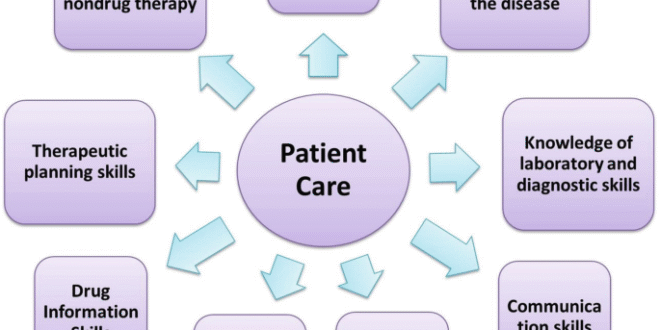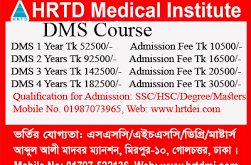Drug Knowledge In Pharmacy Details
Drug Knowledge in Pharmacy. HRTD Medical Institute Mobile Number-01797522136, 01987073965. Drug knowledge in pharmacy encompasses a broad range of expertise including the design, manufacture, action, delivery, and classification of drugs, as well as their safe and effective use. Pharmacist’s are experts in this field, playing a crucial role in patient care by dispensing medications, ensuring proper dosage and preventing harmful interactions, and providing counseling on medication use.

Key areas of drug knowledge in pharmacy:
- Pharmaceutical Sciences: This includes understanding the chemical, biological, and physical properties of drugs, as well as their manufacturing processes.
- Pharmacology: This involves studying how drugs affect living organisms, including drug targets, design, and development of new drugs.
- Drug Information: This involves gathering, evaluating, and disseminating information about medications, including their identification, uses, dosage, and potential side effects.
- Patient Counseling: Pharmacists use their drug knowledge to counsel patients on the safe and appropriate use of their medications, including potential interactions and side effects.
- Drug Therapy Management: Pharmacists are involved in managing drug therapy, including preventing and resolving drug-related problems and optimizing medication regimens.
Specific examples of drug knowledge in pharmacy:
- Antihypertensive and anticonvulsant drugs for pre-eclampsia and eclampsia: Studies have shown that pharmacy workers may have varying levels of knowledge regarding these drugs.
- Drug-food interactions: Pharmacists need to be aware of potential interactions between medications and food to ensure safe and effective treatment.
- Drug information sources: Pharmacists utilize various resources to stay updated on drug information, including professional journals, databases, and continuing education programs.
Importance of continuous learning:
Pharmacists need to continuously update their knowledge and skills to keep pace with advances in pharmaceutical science and to provide the best possible patient care
What are drugs?
Drugs are chemical substances that can change how your body and mind work. They include prescription medicines, over-the-counter medicines, alcohol, tobacco, and illegal drugs.
What is drug use?
Drug use, or misuse, includes:
- Using illegal substances, such as:
- Anabolic steroids
- Club drugs
- Cocaine
- Heroin
- Inhalants
- Marijuana
- Methamphetamines
- Misusing prescription medicines, including opioids. This means taking the medicines in a different way than your health care provider prescribed. This includes
- Taking a medicine that was prescribed for someone else.
- Taking a larger dose than you are supposed to.
- Using the medicine in a different way than you are supposed to. For example, instead of swallowing your tablets, you might crush and then snort or inject them.
- Using the medicine for another purpose, such as getting high.
- Misusing over-the-counter medicines, including using them for another purpose or in a different way than you are supposed to.
Drug use is dangerous. It can harm your brain and body, sometimes permanently. It can hurt the people around you, including friends, families, and kids. If you are pregnant, it can harm your fetus. Drug use can also lead to mild, moderate, or severe substance use disorders. Substance use disorders are sometimes called addiction.
Drugs are chemical substances affecting living organisms, used therapeutically (medicines) or recreationally, working by altering body functions via various administration routes (ingestion, injection, etc.), with pharmacology studying their effects and pharmacy ensuring safe use, encompassing discovery, production, and dispensing. Understanding them involves knowing their purpose (treating, preventing disease), how they act (mechanisms), potential benefits, risks (side effects, addiction), and proper use.
Key Concepts
- Drug Definition: Anything (not food/nutrient) affecting body structure/function, used for diagnosis, cure, treatment, or prevention of disease, or recognized by pharmacopeias.
- Pharmacology: The science of drugs, studying how they interact with living systems (mechanisms, effects, uses).
- Pharmacy: The practice of preparing, dispensing, and monitoring medicines for safe, effective use.
- Administration Routes: Ingestion (swallowing), inhalation (breathing), injection (shots), topical (skin patch), smoking, etc..
Drug Classification (Examples)
- Therapeutic Categories: Analgesics (pain relief), Antibiotics (infections), Antidepressants (mood), Antihypertensives (blood pressure).
- Mechanism of Action: How they work (e.g., blocking receptors, inhibiting enzymes).
- Legal/Controlled Status: Prescription (Rx), Over-the-Counter (OTC), Illegal.
Core Knowledge Areas
- Therapeutic Use: What it treats (e.g., fever, high BP, anxiety).
- Dosage & Administration: How much, how often, and how to take it.
- Side Effects/Adverse Reactions: Unintended effects (e.g., drowsiness, nausea).
- Interactions: How they affect or are affected by other drugs, food, or conditions.
- Dependence/Addiction Potential: Risk of physical/psychological reliance.
Why It Matters
- Safety: Avoid overdoses, dangerous interactions, or misuse.
- Effectiveness: Ensuring the right drug treats the right condition.
- Health Management: Empowering individuals to understand their treatments and make informed choices.
 MATCDHAKA – Medical Assistant Training Centre in Dhaka Pharmacy, Veterinary, Dental, Nursing, Pathology, Physiotherapy and Homeopathy Training Institute in Dhaka
MATCDHAKA – Medical Assistant Training Centre in Dhaka Pharmacy, Veterinary, Dental, Nursing, Pathology, Physiotherapy and Homeopathy Training Institute in Dhaka






